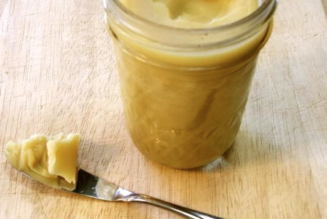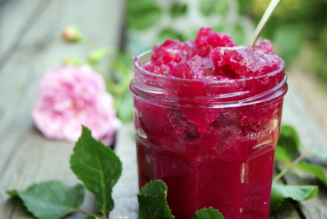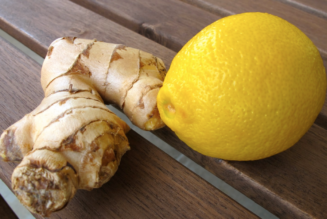The Three Phases Of Life
Ayurveda relates the five elements to three phases of life — Vata, Pitta and Kapha. The five elements dance through time and space and become the biological medial terms of Ayurveda: Vata, made up of ether/space elements; Pitta, the combination of fire with water; and Kapha, comprised of water and earth. These three “doshas” are describing qualities, tendencies, characteristics and attributes relative to the phases we all go through.
Kapha
The first phase begins with Kapha, the “Spring Type.” We all begin in the womb, a womb of sorts, and this environment is very watery. We establish the solidity of earth known as immunity. This happens from in utero and until the onset of puberty — traditionally from birth and until 15. The word “kapha” means to grow, to create form. It is anabolic. “Mother’s milk” is the primary substance that nurtures the body and mind, establishing immunity. Kapha governs immunity.
Pitta
The next phase is Pitta, the “Summer Type.” Pitta begins with puberty, where testosterone and estrogen further transform the body and mind. Pitta means “that which transforms and digests.” The average age used to be 15, but now is much earlier and lasts until between 45-50. Testosterone is high in men and estrogen is prominent in women, and appetites and metabolism increase. Pitta is about metabolism and governs the endocrine system and digestive system. Sex drive increases. Pitta phase is about establishing and exerting oneself in the world through identity, like the sun wanting to be seen more.
Vata
The last stage is Vata, the “Fall Type.” Vata begins when the processes andropause and menopause initiate. Andropause is the decline of testosterone in men, with an increase in estrogen, and menopause is the decrease of estrogen and an increase in testosterone in women. The poles reverse here. Sex drive slows down. Appetite diminishes. Vata governs the nervous system and sleep quantity and quality changes. This is a more delicate and sensitive time. This time ends when the last breath is taken.
The Quality Of Health – Vata, Pitta, And Kapha Symptoms
It is also during this phase that the quality of our health can be observed and we can see through symptoms, or the lack thereof, how well the first 45-50 years of life have been properly managed or mismanaged. Vata-predominant people will show more symptoms, i.e., arthritis, dementia, Parkinson’s, insomnia, constipation, dryness, joint issues and more. Pitta-predominant people will have possible alleviation of Pitta symptoms since they are no longer in their Pitta phase, and Vata can show up but in different ways, depending on how imbalanced Pitta was during its earlier years. Kapha will have less symptoms but if Kapha is out of balance then it can affect Vata negatively, by what we call “blocking Vata”; Alzheimer’s may be an example, and even thyroid health and memory issues can be clearly observed. Keep in mind that Ayurveda speaks volumes to how Vata-predominant types are prone to more Vata conditions, Pitta to more Pitta and Kapha to more Kapha.
Ayurveda is a preventative system of medicine and health care but also a guide to support you in optimal living. How we choose to live our lifestyle will determine if we will incur disease or redirect it. Our lifestyle should be a reflection of our life, and our life should be supported by choices that enliven us versus enslave us. As we live according to the daily cycle, seasonal cycle, annual cycle, lunar cycle and life cycles, we can recycle the breath over and over again with more joy and less sorrow but ultimately more peace and ease.
Sweet Potato Pancake/Waffles Recipe
As we enter into Vata Season (cold and dry time of year) we naturally do what the animals do in that they begin to store food. For us as humans, though we may go into semi-hibernation, we go inward and store food in the form of High Fat and Protein to insulate us from the cold. This recipe helps to give us adequate nutrition in alignment with the season. This recipe is best for Vata and Pitta types. Kapha may increase in more Kapha.
Ingredients:
8 oz. of sweet potato (either freshly boiled or out of an organic can)
1 tbs. of baking powder
pinch of salt
1 cup of almond milk
1 cup of spelt flour
1 tbs. of pecans or other nuts
1/2 cup of ghee
1 tbs. of raw sugar (optional)
3 eggs
1/4 cup of maple syrup
Preparation:
Mix dry ingredients together and wet ingredients together. Then combine both.
Heat a a grill/pancake pan, then add a teaspoon of butter or ghee.
Take a ladle worth of batter and add it to the pan.
When you see a significant amount of bubbles forming that’s when it is time to flip the pancake.
Cook until golden brown. Remove.
Add pecans or other nuts. Apply maple syrup and serve.
Enjoy!
Note: you can also use this recipe to make pumpkin pancakes/waffles.
Simply switch out the sweet potato with pumpkin. Just as good.
About The Author:
Vishnu M.Ayu, BA Psy., LMT, CSP, E-RYT, CS2, is a licensed massage therapist with more than 15 years of experience and Master’s of Ayurveda/Yoga from Hindu University of America. He is the owner of ‘Hidden Health’ Center and offers Ayurveda out of a few locations. To learn more about Vishnu and his practice you can find him at hiddenhealthcenter.com.
Want More?
INTERESTING: Increasing Your Vitality Through Ayurveda – Susan Weis-Bohlen
In Sanskrit, Ayurveda means “knowledge for long life.” The 5,000-year-old Indian science of health, Ayurveda is the oldest known medical system in the world. Susan Weis-Bohlen, a Chopra Center certified instructor of Ayurveda, introduces foundational principles, which include nutrition, meditation, and yoga, as well as the three primary mind-body constitutions (doshas).
Contact Susan Weis-Bohlen at BreatheAyurveda.
Disclaimer:
This information is strictly for educational purpose only and not considered medical advice. Always first discuss with your primary care physician before considering any new health regimen.

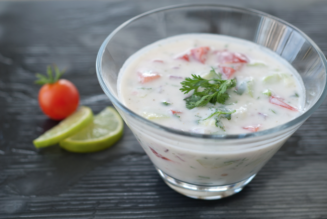
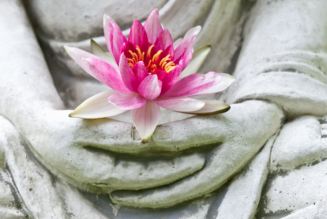
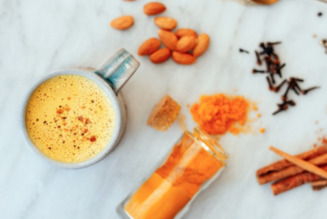
![Female Health: Amenorrhea [cessation of menses] – An Ayurvedic Perspective](https://healthyayurveda.com/wp-content/uploads/2015/07/1.-Amenorhea--327x219.png)

